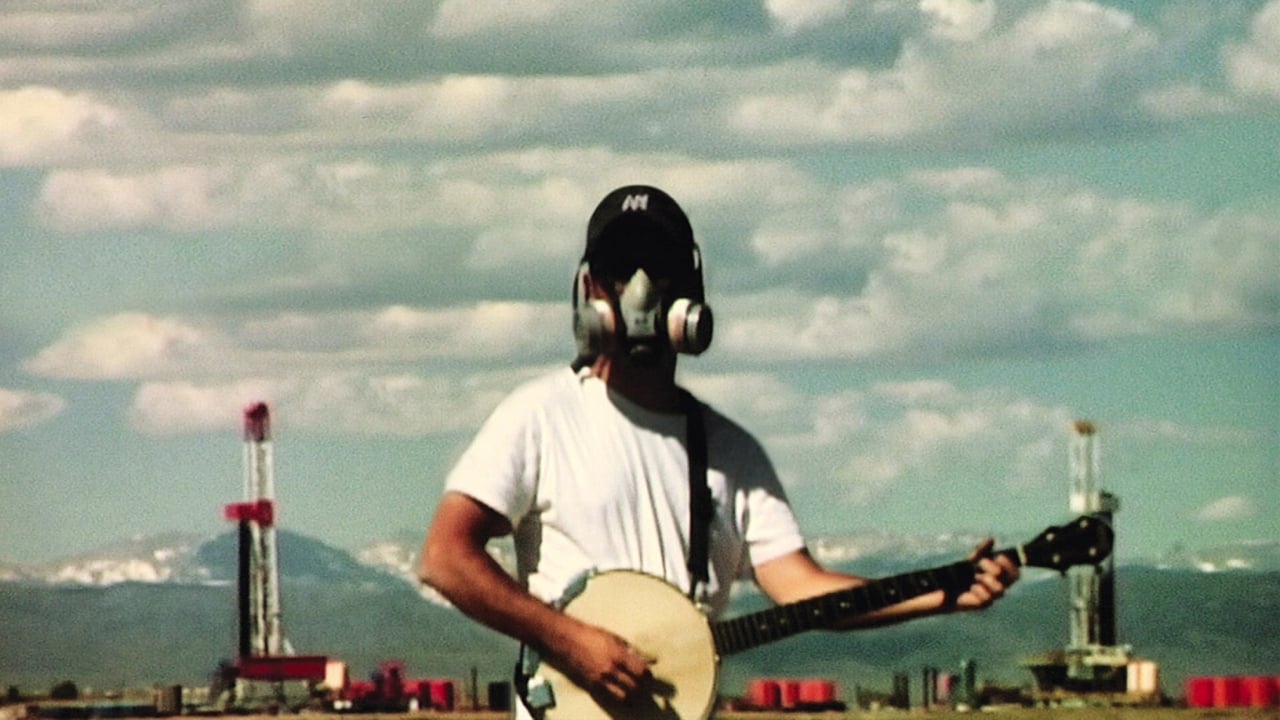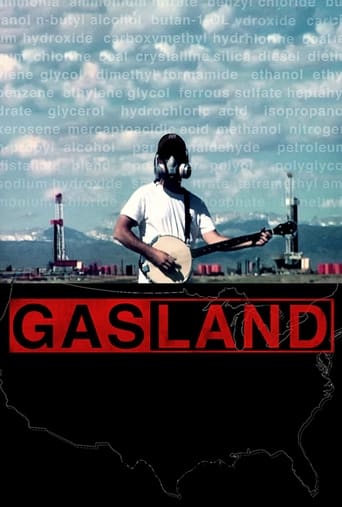

just watch it!
... View MoreAm I Missing Something?
... View MoreThe film was still a fun one that will make you laugh and have you leaving the theater feeling like you just stole something valuable and got away with it.
... View MoreIt really made me laugh, but for some moments I was tearing up because I could relate so much.
... View MoreDocumentarian Josh Fox takes a look at the new phenomenon of fracking. The oil and gas industry has developed hydraulic drilling to inject a mix of water and chemicals into the ground and fracturing rock releasing the natural gas stored. President Bush and Dick Cheney signed bills to exempt the practice from environmental laws like the Safe Drinking Water Act. Fox is offered around $100k to lease his remote family Pennsylvanian home. He goes and finds rural residents that have suffered from contaminated water believed to be the result of the fracking. This movie is definitely one-sided. It's part-investigative and part-advocacy. He plays the little guy angle to its utmost. One thing that can't be denied is that this started a conversation. The burning water visual cannot be ignored.
... View MoreMarxists always lie. The truth is their kryptonite. The Internet allows common people to spread the truth. Communism's lies are apparent. Remember Loose Change? There were SEVERAL releases of that film trying to claim 9/11 was an inside job. Debunked more time than Monica went down on Billy boy. Does Josh Fox re-edit and re-release his fauxmentaries?How many Grubers does it take to sell propaganda to make it profitable? When will people wake up and see the power grabs of the communists? Communists are a totalitarian regime. They will say or do anything to get power. Then they enjoy life while you starve.
... View MoreThis movie is almost completely inaccurate. It makes fracking seem like an environmental nightmare, which it absolutely is not. Josh Fox cherry picked every piece of data the movie is based on. Almost every scientific claim made here was proved false upon further investigation.In the flaming water scene, for instance, those people have had naturally occurring methane in their water for decades. It's a well known phenomenon seen all over the world. All air and water quality studies in Dimock have shown that their air and water is completely fine.Everything about Dish, Texas was also fabricated. The woman who conducted the studies about the air and water quality was later shown to have blatantly lied about her qualifications, and to have fabricated numerous other studies. All follow up research conducted by the Texas EPA or US EPA found no significant difference in air and water quality from anywhere else in the country.The list goes on and on. This movie is a hoax to get people stirred up about an issue that's not really there.
... View MoreThe title as well as the photos on this low budget documentary are attention grabbers. This enticed me to pick select this item out from all the other underdog videos from our local video store where all the goth and leather clad and pierced humanoids hang out.Such selling tactics are reminiscent of the strategies used by National Enquirer. The strategy to get you hooked is to spice up some convincing but boring facts with some outrageous claims masquerading as factual!.... a poisonous mix bond to encourage further bias away from truth.But documentaries have the advantage over print it that they can communicate to the illiteratus stultus..... which brings me to the main point.....For those lacking critical thinking and survival skills to remain employed..... there will be plenty of free time to indulge their anger into action by joining the most extreme environmental movements, this documentary does the trick! The excessive emphasis on natural gas overshadows the most critical issue in Pennsylvania and elsewhere which is the mining and use of coal, the prime fuel source for the USA electrical grid.
... View More